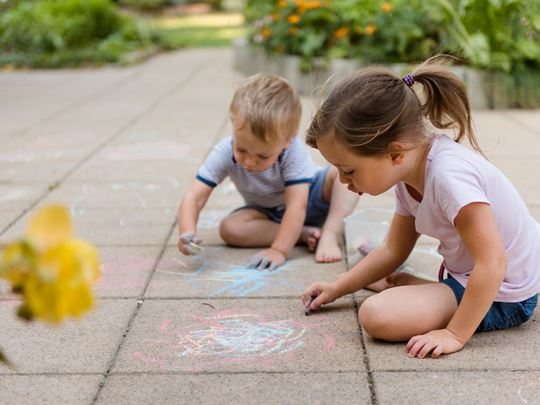Fostering Siblings: Why Keeping Families Together Matters
When children first enter care, their bonds with their siblings may be the only trusting and loving relationships they’ve experienced so far in their young lives. Let’s take a look at why it’s important to prioritise family time for siblings in care.

Why are siblings separated?
Imagine: you’re sitting in the back of a stranger’s car, having been taken away from your home and your family. You’re being driven to a whole new life which you have no say in— new foster parents, a new house, maybe even a new school. You’ve been told that your siblings are staying together, which brings you some comfort, but when you ask where they are or when you’ll be able to see them again, no one seems to have any clear answers.
Scenarios like this are the sad reality for many children up and down the UK. Siblings who are taken into care are separated for a range of reasons, including:
- Younger children in the family being placed for adoption.
- In rare cases, if the relationship between the siblings was very difficult, such as if violence was involved.
- A limited number of foster parents who can provide homes for more than one child at a time— that’s why here at FCA we’re encouraging more people with the space in their homes and in their hearts to consider fostering sibling groups.
While it is not always in children’s best interests to live together in the same foster home, for most children living with a sibling can be hugely beneficial. Let’s learn more about what makes sibling relationships so important for children in foster care.
The impact of sibling separation
Studies show that around 40% of children in foster homes will face sibling separation, a number which is much higher for children in other forms of care such as supported accommodation or shared children’s homes.
The importance of sibling relationships is perhaps best laid out by the Children’s Commissioner Report into siblings in care, which says:
‘These relationships can provide the ‘protective effect’ of family… they are often the most loving and important in children’s lives, and can be a source of strength, stability and support throughout the challenges and insecurity they have faced. Being separated from their siblings when placed in care [can have] lifelong repercussions, damaging those relationships in ways that could sometimes never be repaired.’
When siblings are unable to live together in the same foster home, they may go from seeing each other every day to as little as once or twice per year. While siblings cannot always stay together, having a foster parent who understands the benefits of keeping in good contact with siblings can make all the difference, and children can still benefit from the protective factors associated with sibling bonds even if they cannot live in the same foster home.
Key benefits of sustaining family bonds
There is a huge range of benefits which come when foster parents work hard to sustain sibling bonds. These benefits include:
- Emotional connection. Many children who are separated from their families have to forge entirely new relationships from scratch when they enter the care system, on top of dealing with the trauma of separation and any trauma caused by the experiences which led to them entering care in the first place. Having a loved one by their side provides emotional support and someone to lean on.
- Shared experiences. Many children in foster care can struggle to find a sense of belonging. Being with a sibling during a time when everything seems to be changing rapidly can help them to keep a hold of their sense of identity. Having someone by their side who they feel can relate to their experiences can also make the big transitions associated with foster care easier.
- Lifelong connections. Sibling bonds often outlast many of our other relationships, including those with our parents. Disruption to these relationships while children are growing up can cause lasting damage. If a sibling bond is not properly cared for it may begin to wilt and eventually wither, making it much harder for siblings to reconnect in adulthood. By taking the steps to nurture sibling relationships through visits, phone calls or living together, foster parents can help children to maintain lifelong, treasured bonds.
Change a child’s life today
With the help of loving foster parent who understands the need to nurture and protect sibling bonds, the unconditional love shared between siblings can last a lifetime. Are you ready to support siblings in foster care, or could you welcome a child into you home? Contact us today here at FCA to learn more about how you can become the positive change in a child’s life.








